Several people have asked me why I still hold my clergy credentials with the United Methodist Church. After all, I have been associated with the Institute on Religion and Democracy (IRD), with Good News, and was a staff person with the Confessing Movement. Even in the 1990s, I twice submitted petitions to my annual conference which, if passed, would have been forwarded to the General Conference, asking for a study group to examine the possibility of amicable separation (one got good discussion but failed; the second never was allowed even to come to the floor of the conference).
I have been Methodist Episcopal, Methodist, and United Methodist for nearly 90 years. Of course, I have had other influences in my life. My mother grew up not just Mennonite but fundamentalist Mennonite, and not just that, but a dispensationalist, fundamentalist Mennonite. She moved to a Mennonite community (Shipshewana, IN) to teach but for unconfessed reasons (I suspect that the eligible men were Methodist) attended the Methodist Church. There she met my father. They were married. I tell people my mother was on the Methodist roll but in her heart she was Mennonite.
They moved to the county seat (LaGrange) and joined the Methodist Church. In Indiana, county seat Methodist Churches often carry some prestige with doctors, lawyers and business persons as members. Even in the 1930s my mother was not happy with the pre-school Sunday school material offered by the Methodist Church. No Bible. Later, I read to find out why. Ethyl Smithers, in The Use of the Bible With Children, the “official” statement of the Methodist Episcopal Church South, stated that many Bible stories, especially in the Old Testament, should not be taught to children lest they take them literally and will have to have them reinterpreted later in life.
No mind. My parents sent me to a Mennonite-dominated community Bible school in Berne, IN, for five weeks each summer for 10 straight years starting when I was four. There, with 700 kids we learned all kinds of Old Testament stories, memorized many passages of scripture, and learned gospel songs. Back in LaGrange I collected perfect attendance pins for something like 10 straight years. My family visited all kinds of churches for revival meetings, missionary speakers and concerts. I was in a Methodist boys’ quartet which sang 153 times over a three year period. I went to a Methodist holiness background college (Taylor University) where we debated Calvinism, modernism, and holiness. I was also called into the ministry there.
When I declared for Garrett Biblical Institute (now Garrett-Evangelical) my mother’s relatives were horrified. They tried to pray me into some other school, and even to some other denomination (like Baptist), but God had other plans (it helped that my wife-to-be was close by). I was appointed to a three-point circuit about the time I went to Garrett (age 22) with unusual instructions from my district superintendent (“Keep an eye on the revival and don’t let it get out of hand”).
I learned many things in seminary but I learned ministry at my churches. We had revivals (they never got out of hand), prayer meetings, pot-lucks, vacation Bible schools, controversial charge conferences, and church camps. I learned how to do weddings and funerals and pastoral calls. I learned the blessings of having a good mixture of rich and poor and all kinds of social classes. We were all one in Christ in rural churches in ways that larger city churches (as I learned later on) would never be.
I argued for an evangelical presence in seminary. When I asked that we might occasionally have evangelical speakers in chapel, the head of chapels informed me that everyone there was evangelical. Some professors knew better. My favorite professor, William Hordern, used to comment that the biggest criticism he got from his popular book A Layman’s Guide to Protestant Theology was for including “fundamentalism” as one of the religious options for the present day. Hordern encouraged me to write an article, “New-evangelicalism—New Life on the Right,” that was published in The Christian Advocate.
When Good News came on the scene in the late 1960s I was one of the first supporters, and then an early board member. I helped to organize our annual conference’s Evangelical Fellowship. The purpose, as I tried to explain, was not to be political, but to have a fellowship where we could say “Amen” and “Praise the Lord” and use evangelical language and talk about evangelical concerns. Our bishop and the district superintendents were supportive. We soon were asked to lead the annual conference morning “Prayer and Share” sessions. I do not remember a single time when we were labeled as disloyal.
In the 1960s, I did a four-weeks continuing education event at a Methodist seminary and was appalled, not because of the liberalism, but because of what I considered as anger, from students and faculty, not just at society but even at the church. The sins: Vietnam, racism, sexism, colonialism, prejudice and hate. It was not only conservatives but liberals as well that were guilty. The seminary I had attended, Garrett, in the same hostile spirit, had become so divided into identity groups, and gave the faculty such a difficult time, that in May 1970, the school simply shut down (it did hold a graduation, but under duress).
I was involved in youth ministry at the time and witnessed the total takeover of youth ministry by anti-establishment types (I remember the accusations that the old Methodist Youth Fellowship (MYF) was “Micky Mouse.” Youth ministry on the national level reorganized (and began funding gay groups). In 1974, a number of us were called to Nashville for an update. In 1967 there had been 13 youth staff under the Methodist Board of Education, 15 secretaries, 52 full-time conference directors, and 1,200,000 pieces of youth material printed quarterly. By 1974 there was one part-time youth staff, one secretary, and 400,000 pieces of youth material printed quarterly. All this was in the name of being “relevant.”
Still, our own annual conference program flourished. I remember sub-district youth rallies of 200 youth. Our senior high Institute was enrolling 3,000 senior high youth in our summer program per summer. In our North Indiana Conference (Methodist) we did programming mostly on a district, not a conference level. Our conference was second in the connection in Advance Giving.
I trace a lot of United Methodism’s problems to the 1972 Methodist/Evangelical United Brethren merger. Not because of the EUBs, but because the merger led to a restructuring that gave us powerful super-boards which seemed to be accountable to no one, especially to the General Council of Ministries, (an EUB contribution to merger). In a few years, the whole General Council on Ministries idea was discarded. It would be replaced by an agency almost as bad, the Connectional Table. The Connectional Table is made up basically of bureaucrats and is out of touch with ordinary local churches. More of this in my next article.
I have loved and appreciated every appointment I was ever given, but in addition to my first 3-point rural circuit, I remember with fondness my years as a district superintendent. I never would have expected to be a district superintendent except for Bishop Jim Armstrong, who, though liberal theologically, did believe in inclusion which meant that the conference would be strengthened with evangelicals serving on the cabinet.
We emphasized districts and local churches in those days. This meant regular district meetings with ministers (serve breakfast and they will come), district mission saturation events, Christmas parties, lay witness missions. For me as a district superintendent this meant going to lots of pot-lucks, joining several local church choirs for cantatas, preaching revivals, showing up unannounced at churches. It for sure meant being in every local church at least once during the year for charge conferences. This emphasis on districts and local churches has been replaced with group charge conferences and conference-focused programming.
Much of this began to change in the late 1990s (more of this in the next article). Despite the fact that most Protestant churches are still more conservative than liberal, and still affirm the traditional moral teachings of the historic church in regard to marriage and the family and human sexuality, modern progressive secular culture has begun to dominate in the progressive circles of mainline denominations, resulting in even greater gaps between seminaries, bishops, and bureaucracies on the one hand, and local church members on the other.
Nothing illustrates this better than the recent 2024 General Conference. The gay agenda won the day. Progressive interpreters of the conference speak of a new day, a new hope, a new big tent where all will be welcome. They suggest we will now be united. But how can we speak of being united when one-fourth of the American churches have disaffiliated? This would be the quarter of the church most committed to Biblical teaching on doctrine and morals. How can we be united when the African churches have not yet dealt with the implications of being in a church where the official denominational teaching on human sexuality says one thing and their own interpretation of Scripture says another?
I, for one, still want to hold out hope. I want to keep my ties with United Methodism. I want to speak of what things might be done to move the church in a positive direction. I cannot do this as an outsider. I have many friends still United Methodist who are feeling abandoned by fellow evangelicals. That is why I am staying, at least for the moment, with the United Methodist Church.
(A subsequent article will continue part two of Staying with the UM Church)
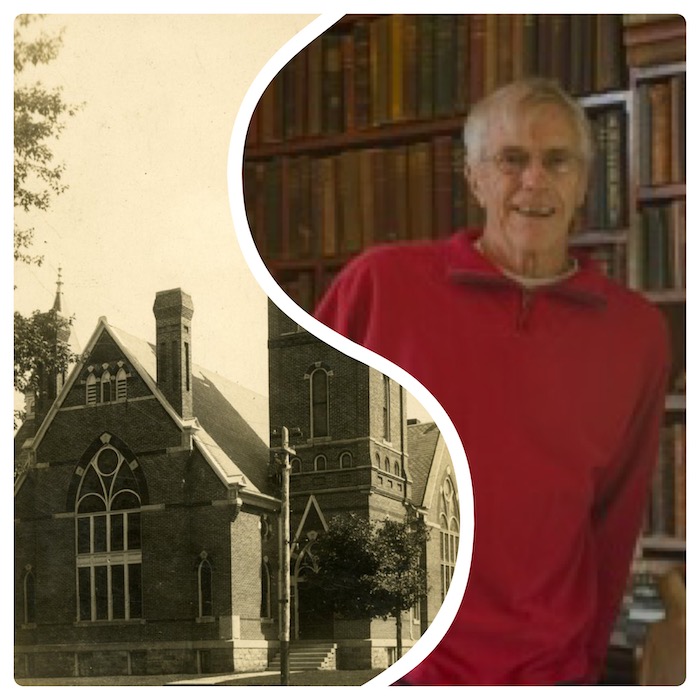
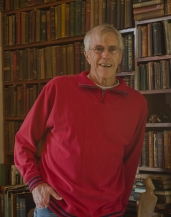
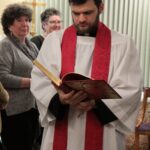
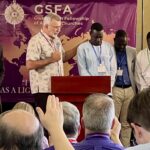
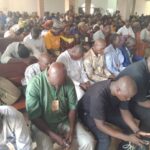

Comment by Jan Pruitt on May 30, 2024 at 10:47 pm
I remained in the UMC for most of my 70 years but left when my small rural UMC congregation voted by 1 vote not to disaffiliate. I personally witnessed the General Conference in the early 90s in Louisville and knew then that the push to go against Biblical foundations would never cease. I have only seen that push grow in the UMC over the years. I have found my new home in the Global Methodist Church and will contend for the faith in that church now.
Comment by Larry Neal on May 31, 2024 at 7:51 am
I am a fourth generation Methodist from both sides of my family and have been a UMC minister and Army Chaplain who has grown increasingly frustrated with the men and women who are running the UMC into the ground. My local congregation voted to remain UMC, and we lost about thirty members immediately thereafter, with more leaving almost weekly. Many of us who choose to remain behind did so because of our lifelong affiliation with this local church. However, some of us have been contemplating forming an “Independent Methodist Church” in our present building. Others (including me) are contemplating ending any financial support to the UMC. Still others are wondering just how we could unite with one of the breakaway conferences from the Central Conference? You might ask why not join the GMC? Maybe down the road after the dust settles and new leadership is formed. I guess I am waiting for the big tent to collapse.
Comment by Gary Bebop on May 31, 2024 at 12:14 pm
Always enjoy reading of the northern Indiana ethos and the apex of its conservative spiritual history. Riley Case flourished in life and ministry during the Golden Hour of (faithful) evangelical ascendancy. Yet, as he documents, the poisons of modernity were already circulating in the system. I experience a wave of extreme sadness when I consider the historical trajectory. Our new managers are determined to make their rule irrevocable.
Comment by David Gingrich on June 1, 2024 at 6:21 am
I always felt that ‘Good News’ was a top-down, not grass roots, organization. And I was not surprised to see it fail in revitalizing the UMC.
Comment by Gary Bebop on June 1, 2024 at 3:37 pm
Good News was an advance element, something like irregular forces sent in to disrupt the enemy’s security ahead of the main effort. Good News was able to express the discontent widespread among United Methodists. Its leadership has been effective in assembling a network of orthodox Wesleyan-holiness folk, facilitating resistance to apostacy within the UMC, and deconstructing the propaganda spewing from the Left. Some of the keenest ecclesiastical minds and political savvies have worked on this project, and of course there were many foot soldiers in the Lord’s army.
Comment by Daniel Lindner on June 2, 2024 at 9:34 am
It will not get better. Come out from among them…it is no longer a church. It’s a godless social club. It all started with 1 Timothy 2:11-15 being rejected.
Comment by Ed Snell on June 2, 2024 at 9:48 am
Having grown up through my college years and beyond (until nearly age 30) involved in THE ROCKY MOUNTAIN REGION OF THE UNITED METHODIST CHURCH,…BIBLICALLY,…IT HAS ABANDONED THE FAITH AND HAS BECOME “ROTTEN TO THE CORE”! NO WAY DO THEY TEACH “GOD’S TRUTH” BUT THEY HAVE DIGRESSED INTO A “CULT OF LIBERALISM” (see Christian APOLOGIST Dr. Walter Martin’s analytical CD “THE CULT OF LIBERALISM”). MANY OTHER “FORMER” CHURCH DENOMINATIONS HERE IN AMERICA, WHO IN THEIR INCEPTION WERE “ROCK SOLID THEOLOGICALLY” have fallen prey to the late 19th century teaching of German Theologin Dr. Rudolph Bultmans “skewed” interpretation of “demythologizing” of the Scriptures to their own destruction ! I personally sat under the preaching, of a man, while in college, who as reported to me personally by the church ELDER BOARD, was having an “elicit affair” with a member of his church at the time that his wife was home dying of cancer!
Subsequently, THIS, so called “preacher” was PROMOTED TO BECOME “THE BISHOP” of THE UNITED METHODIST CHURCH ROCKY MOUNTAIN REGION! Do you, in ANY SENSE ofREALLY BELIEVE THAT TRUE CHRISTIANITY IS BEING PROMOTED IN IT’S PURITY BY AN ORGANIZATION SUCH AS THIS! GOD SAYS, “I WILL ‘SPIT’ YOU OUT OF MY MOUTH”! Revelations 3 : 15 & 16
Comment by Jdatl on June 2, 2024 at 1:32 pm
Either the bible is the word of God, or its not. The UMC church is writing their own religion, as was prophicied in the bible. Tickling iching ears. Now its a club, like Rotary or kewanas. Those who stay will answer to God. The bible is clear.
Comment by Brent on June 2, 2024 at 5:45 pm
One of the first splits from the Methodist Episcopal Church called themselves “Republican Methodist.” They argued against bishops, stating that why would we adopt a system we just finished defeating in the Revolutionary War? Apparently they had a point.
Today there are 82 denominations in the world who call John and Charles Wesley their fathers in faith.
Since the mid 1930’s, there have been three major merger events, the German Methodist, the Southern Methodist and the EUB. The non-organic and rapid administrative growth through those mergers created another stressful enviornment that has led to another massive split.
Peter Cartwright, an early circuit rider, believed that had the Methodist worked out their differences over Slavery in the 1840’s, we would have avoided the Civil War.
I pray that his observation then is not relavent today.
Comment by Coleen on June 4, 2024 at 1:34 pm
For the unity of believers to be more than a social club, it needs to be based on REAL.
Is your foundation solid rock or shifting sand?
Comment by Michael Lee on June 6, 2024 at 5:26 pm
We grieve. We mourn. At some point – it must be time to go forward…..in Christ……In Christ alone.